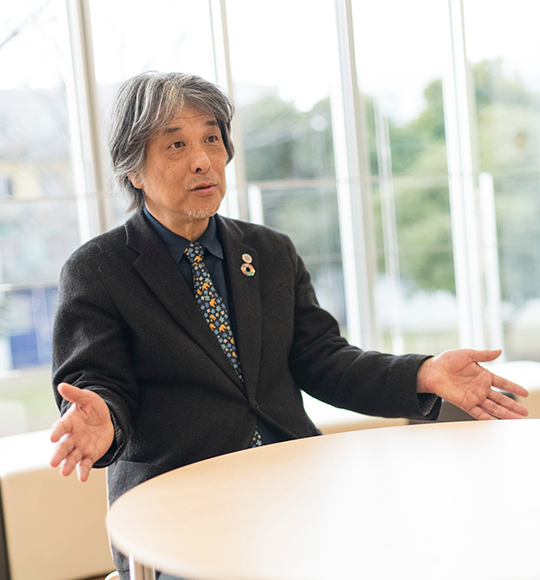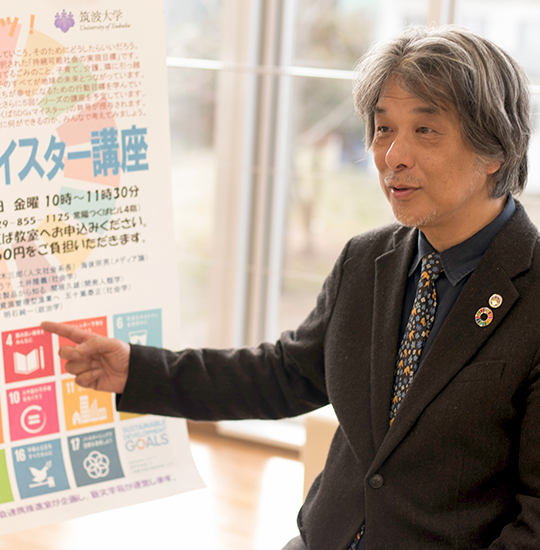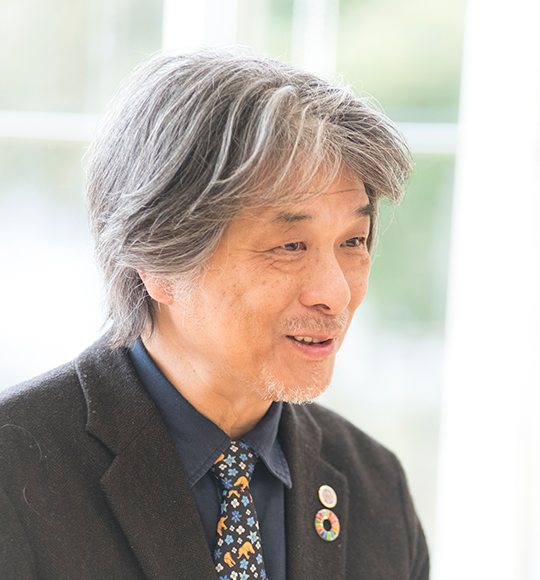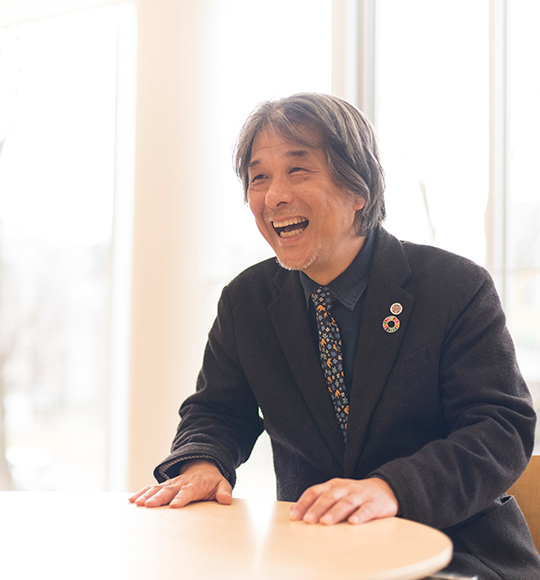MESSAGE
AOKI Saburo
Professor, Faculty of Humanities and Social Sciences
Head, Bachelor’s Program in Global Issues
From International Collaboration to Public Lectures
Education for Sustainable Development
Fulfilling Sustainable Development Goals requires action from people at the local level in addition to global collaboration
The Bachelor’s Program in Global Issues engages in ‘Knowledge in Action’ and expectations for it to foster human resources in Sustainable Development are high

UNESCO International Collaboration
In the spring of 2015, we, at the University of Tsukuba, were invited by the UNESCO Social and Human Sciences Sector to contribute to the SDG initiative. The initiative, in accordance with the corresponding UN motion, was to be supported by the UNESCO network.
Following this, it was agreed that we would support and participate in the initiative in collaboration with the International Association of Universities (IAU), an organization created under the auspices of UNESCO. After careful consideration, Tsukuba University chose to work towards Sustainable Development Goal 10, which aims to ‘reduce inequality within and among countries’.
After many in-depth discussions with the IAU, we are currently in the process of drafting a proposal, which, with the support of UNESCO, is to be included in the policy recommendations of the SDG interim report to be delivered to the UN in June of this year.
A university is a gathering of researchers, and research is basically analysis. Even though the content of this research is diverse, the results of the analysis have been closely examined and compiled by the IAU for inclusion in the SDG proposals. Work like this is ‘Knowledge in Action’ rather than just research. Put another way, it is important to go beyond simple analysis in order to explore and discover ways to engage with those results that lead to action.

Public Lectures in Sustainable Development Goals
While international collaboration is vital for the fulfillment of SDGs, it is not the only factor. Local action is also required in order to pursue a wider understanding in our society. Which is why, in parallel with the global cooperation of the IAU, we are running a series of SDG public lectures in tandem with the local government of the City of Tsukuba.
The lectures cover a wide range of topics, such as disparities in living standards of children in Tsukuba, or the process of Asian democracy. Through these lectures, participants come to understand how a sustainable society can be achieved at the global level. The titles of ‘Ambassador’ and ‘Meister’ have been introduced and the lectures aim at being enjoyable. The goal is to foster 3,000 ambassadors within the city.

Connection and Union
There are two keywords related to issues of Sustainable Development Goals: connection and union. Connection is a relationship that goes beyond that between individuals, and union is combining the various aims of different collaborative actions. These become a thread with which to weave a new value. In other words, we offer what we believe is needed to achieve goals that go beyond those of our own proper interests — bricolage is the most effective method to realize this.
From this approach, I truly believe that it is not enough for students to simply study at university. This once again leads to question the academic purpose of a university. For it is important that students also learn how to engage in issues, or more precisely, how to actually engage with issues in the real world. When you become actively involved you can really grasp the problem.

Bachelor’s Program in Global Issues
Our current efforts in the Bachelor’s Program in Global Issues are, in a certain sense, a means towards fulfilling our SDGs within the university, while at the same time a bold attempt to change from a program of study to one of engagement.
It is not exaggeration when we state that SDGs cannot be fulfilled through the knowledge of only a single field, but that instead we must mobilize the full extent of our knowledge. The Bachelor’s Program in Global Issues, where we engage in knowledge in action, is a unique program that is perhaps the first of its kind in the world. This new educational course only began in the 2017 academic year, but from now on I expect the multitude of talent it fosters to go out into the world and contribute to the realization of a sustainable society.




